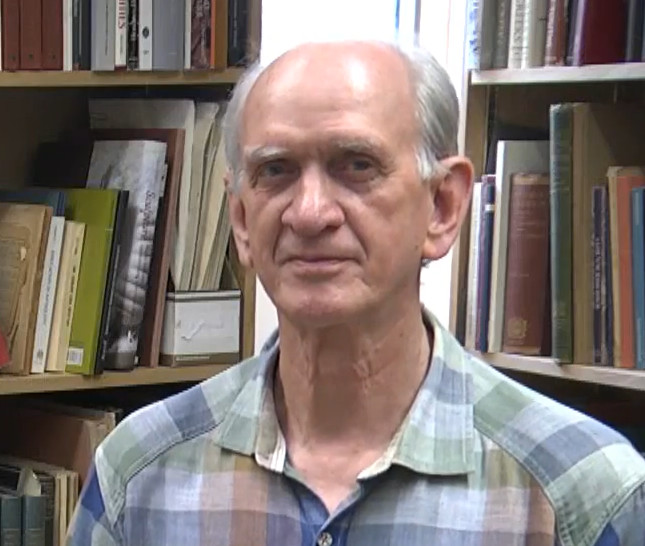Updated programme now available: Parthian Art and the Graeco-Roman World
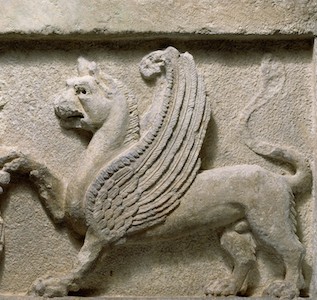
We are now taking reservations for the CARC annual workshop on 3 and 4 October 2024, which this year turns to ancient Iran under the umbrella of our #AncientArtConnections theme.
You can book for free, either for in-person or Zoom attendance, via our Eventbrite page. (Note that you do not need to register with Eventbrite or print out your ticket.) The provisional programme is available here but we predict changes, so keep an eye on this page for the latest information. Speakers include Vesta Sarkhosh Curtis, Pierfrancesco Callieri, Matthew Canepa, Blair Fowlkes Childs, Henry Colburn, Lucinda Dirven, Stefan Hauser, Barbara Kaim, Ted Kaizer, Rubina Raja and Fabrizio Sinisi.
This hybrid workshop, hosted in Oxford with an online audience via Zoom, will address unresolved questions about the identity of Parthian art and its complex relationship with the classical tradition. Ranging from the origins of the Arsacid dynasty in the 3rd century BC to the emergence of a new visual culture under Sasanian rule in the 3rd century AD, this workshop will bring together a panel of international experts to consider how Parthian art connected with the art traditions of Hellenistic Asia and the Roman Empire. We will consider different media, including sculpture, coins, and luxury art, and use recent discoveries and fresh research to cast new light on old problems, including the issue of whether Parthian art even existed as a coherent phenomenon.
The workshop will be recorded and an open access volume of proceedings will appear in 2025. Further details will be announced soon.
Funding for this event is very generously provided by Richard Beleson in honour of Vesta Sarkhosh Curtis.
[Photo: limestone lintel from Hatra, c. 2nd-early 3rd century AD (Metropolitan Museum of Art, open access)]
Art under the Seleukid Empire: New perspectives
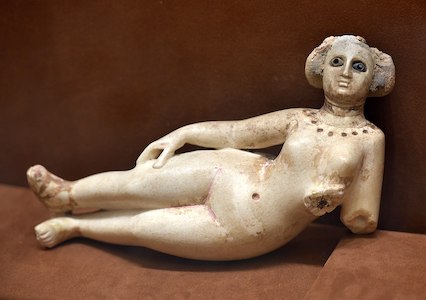
CARC has confirmed the topic for this year's annual international workshop.
'Art under the Seleukid Empire: New Perspectives' will take place on 28-29 September 2023, with an in-person audience at Wolfson College Oxford and online via Zoom. An international line-up of speakers will lead a hybrid conversation about the character of art under the rule of the Hellenistic Seleukid dynasty, which extended at times from the Mediterranean to the Indus. We will think afresh about the character of Seleukid art, the extent to which it can be defined as an entity, and the new light cast by ongoing archaeological discoveries.
Book now for free through our eventbrite page. All in-person attendees will also be given a Zoom link, so there is no need to book twice if you want both modes of attendance.
The provisional programme is available for download here (note that last-minute changes may occur: check here for the latest version).
The workshop has been organized in collaboration with Dr Rachel Wood and with the kind support from Tony Michaels and Wolfson College Oxford.
[Photo: Hellenistic figurine from Seleukia on the Tigris, Iraq Museum, Baghdad (Osama Shukir Muhammed Amin CC BY-SA 4.0 wikimedia)]
Classical Art and Ancient India - international workshop
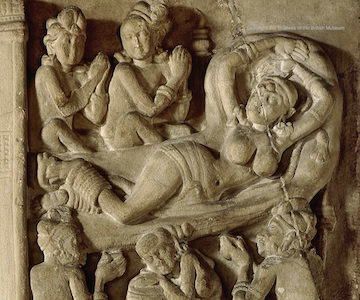
Booking is now open for our next hybrid international workshop, 'Classical Art and Ancient India', which will be hosted in person in Oxford and online via Zoom on Tuesday 21st and Wednesday 22nd March 2023. The workshop will bring together invited international speakers and a worldwide audience to address a topic very closely related to Gandhara and vital for placing classical art in its global context: the question of how much mutual artistic exchange occurred between other parts of India, Greece and Rome in antiquity, and what we stand to learn by studying their art traditions alongside each other.
Reservation, either for in person or online attendance, is free through our eventbrite page.
Read the workshop abstract here.
NEW! Speakers' abstracts now downloadable here.
Read or download the latest version of the programme (note that small changes our expected, so check the latest version here).
This colloquium builds on the success of CARC's past Gandhara Connections workshops. It is also the first event under our new #AncientArtConnections initiative. Through gatherings of this kind, as well as other research, publications, and web resources., we aim to explore many different aspects of the relationship between Greek and Roman art and the wider ancient world, across Asia, Africa, and Europe.
This event is generously supported by the Bagri Foundation.

Dr Rafiullah Khan – Archaeology of the Periphery
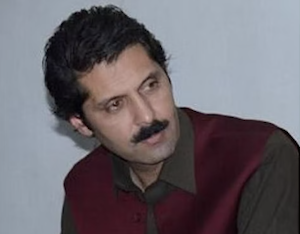
We are delighted to announce a special online seminar under the auspices of CARC's 'Gandhara Connections' project, 2-3.15pm BST, Tuesday 18th October 2022.
Dr Rafiullah Khan (Quaid-i-Azam University, Islamabad and Visiting Scholar at CARC) will speak on:
"Archaeology of the Periphery: The Malakand Agency, the ‘Politicals’ and Antiquarian Scholarship."
This seminar unpacks the complex history of archaeological exploration in Swat in the 1920s-1930s, during the period of British rule on the North-West Frontier.
Dr Rafiullah's talk will look at the role of non-archaeologists, more specifically of political agents of the Indian Political Department, in Gandharan archaeology. While they were integral to archaeological activities in many ways, some political agents developed their engagement to the level of scholarly interest in Gandhara. The work of Major Cobb, political agent at Malakand Agency, is valuable in this regard. He laboured to preserve and exhibit Gandhara sculpture through the installation of his collection in the political agent’s bungalow. He also built scholarly networks through tactics of donations, gifts and exchange of ideas and opinions with archaeological institutions and colonial personnel both from India and England. All this resulted in his scholarly reputation. This talk will argue that in crafting a distinct persona as a scholarly political agent through intertwined administrative, antiquarian, and scholarly activities Cobb drew on the unique political and legal characteristics over the peripheral Malakand Agency. Through his engagement with Gandharan art and crafting of a scholarly persona, Cobb not only wanted to gain personal recognition but, at the same time, to erase the anti-intellectual stigma associated with political officers having a military background. However, since Cobb, like his predecessors in the office, failed to add an institutional dimension to the archaeology of Malakand, his work was ultimately no more than a mere antiquarian interest which, he normalized through scholarly tactics.
To book a place for free go to:
Eventbrite (
https://www.eventbrite.co.uk/e/430927053417) (You will be sent a Zoom link automatically by Eventbrite.)
Beazley for the 21st Century - international workshop
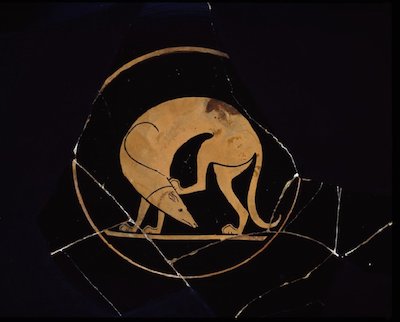
We are delighted to announce the arrangements for this year's CARC international workshop, 'Beazley for the 21st Century', which was originally planned for our 50th anniversary celebrations in 2020 but postponed because of the pandemic.
The workshop, which is generously supported by Jean-David Cahn and Tony Michaels, will take place both in person and online on Monday 26th-Tuesday 27th September 2022.
The workshop will address the potential of Beazley’s legacy and his method for the next fifty years of ancient world studies – not just ceramic research or even Greek art history, but the history and archaeology of the ancient Greek world broadly defined. At the heart of our discussion is the recognition that this academic inheritance embodies something almost unique in the history of ancient art: a conspectus of an entire craft tradition through three centuries at the level of the individual. The workshop therefore asks what the combination of breadth and fine granularity in the Beazleyan method offers for the understanding of ancient culture and society as much as for art, production, and trade.
Download the programme here (Version 3. Note that we expect small changes: please keep checking the latest version.)
Download the full workshop abstract.
Register free, either for in-person attendance or participation via Zoom, through our eventbrite page. For queries please contact <carc@classics.ox.ac.uk>.
NEW! Special poster presentation - click on the title to view
Eleni Hasaki (University of Arizona) and Diane Harris Cline (George Washington University): Network Visualizations of Beazley's ABV and ARV Datasets: The Shape Sectors and Influential Artisans in the Athenian Kerameikoi
[Image: interior of a cup attributed to the Euergides Painter (and once owned by Sir John Beazley), ca. 500 BC (Ashmolean Museum, University of Oxford).]
The 5th Gandhara Connections Lecture: Vidya Dehejia
For this 5th and final annual lecture of the Gandhara Connections project, we are delighted to host the distinguished scholar of ancient art, Vidya Dehejia (Barbara Stoler Miller Professor of Indian and South Asian Art at Columbia University). Professor Dehejia will put Gandharan imagery into the broader context of ancient Indian art in her lecture entitled 'ARTIST, SCRIBE, MONK/NUN, VIEWER: Visual Narratives at Early Buddhist Sites'.
The lecture will be held online via the Crowdcast platform, at 2pm BST on Friday 20th May 2022. There will be an opportunity for the audience to submit questions after the lecture.
For details and registration see our Crowdcast pages.
[Photo: The Times of India]
Previous Events
Gandharan Art in its Buddhist Context: international workshop. 佛教语境中的犍陀罗艺术:国际工作坊
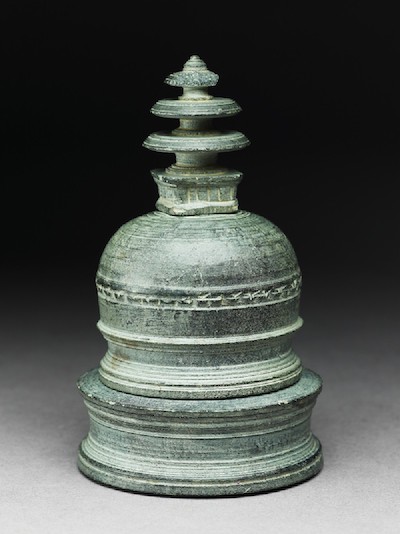
We are pleased to announce that our fifth and final Gandhara Connections workshop will tackle the theme of Gandharan Art in its Buddhist Context – a fundamentally important topic for understanding this material. Owing to the ongoing challenges of the pandemic we shall be holding the workshop online using Zoom and Spatial Chat, on Monday 21st to Wednesday 23rd March 2022. A programme will be released soon. The timings will accommodate live viewers in as many time-zones as possible. We aim to provide simultaneous translation into Mandarin Chinese. The recording of the workshop will also be available online, and open access proceedings will be published in March 2023.
Download the workshop abstract.
Download the latest programme (note that changes are expected - check here for the latest version)
Download speakers' abstracts.
To book a place for free please email us: carc@classics.ox.ac.uk.
佛教语境中的犍陀罗艺术:国际工作坊
本次工作坊将在佛教语境中探讨犍陀罗艺术的主题——这是理解这种材料的一个根本重要的主题。由于大流行的持续挑战,我们将在 2022 年 3 月 21 日星期一至 23 日星期三使用 Zoom 在线举办研讨会。计划将很快发布。时间安排将容纳尽可能多的时区的现场观众。这将是我们第一次提供普通话现场口译的工作坊。
要免费预订位置,请发送电子邮件至 carc@classics.ox.ac.uk
下载研讨会摘要 HERE
下载时间表 HERE
下载演讲者摘要 HERE
[Photo: copyright Ashmolean Museum, University of Oxford]
Digital Gandharan Texts: a special seminar by Mark Allon and Ian McCrabb
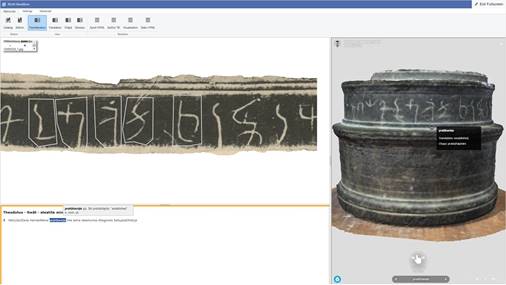
Join us on Zoom at 09:00 GMT on Tuesday 8th March 2022 for a special seminar by Prof Mark Allon and Ian McCrabb of Sydney University, Australia: Digital Gandharan Texts – The Digital Framework for the Research and Publication of Gandhari Manuscripts and Inscriptions. Allon and McCrabb will introduce their exciting project to document and disseminate Gandharan texts and artefacts.
In conjunction with Gandhara scholars from the University of Washington (UW), Australian National University (ANU), Wilfred Laurier University, and other universities, Mark Allon and Ian McCrabb, both at University of Sydney (USYD), are leading the development of a digital framework (platform and methodology) for the collaborative research and publishing of Gandharan manuscripts and inscriptions, the foundation for their digital repatriation to the communities from which these important cultural artefacts originate. This presentation will give an account of these digital developments and digital repatriation strategy and their importance to the field of Gandharan studies.
Mark Allon is Chair of the Department of Indian Subcontinental Studies at the University of Sydney. His primary research interests are the composition and transmission of early Buddhist literature, the ways in which texts have been used by Buddhist communities, and the Indic languages of early Buddhist texts (Pali, Gandhari, Sanskrit). He runs projects in Myanmar concerning Pali inscriptions at the Kuthodaw Pagoda, Mandalay, and in Pakistan concerning Gandhari manuscripts. He is part of a team of scholars and digital humanists at the University of Sydney, Australian National University, University of Washington, Stanford University and elsewhere developing digital capacity for the publication and study of Buddhist manuscripts and inscriptions, particularly those in Gandhari, Pali, and Sanskrit, e.g. Gandharan Buddhist Texts and the Journal of Gandharan Buddhist Texts.
Ian McCrabb is the founder and managing director of Systemik, a Sydney based IT consulting group. Systemik supports a portfolio of commercial and open-source humanities research platforms clustered around content transformation and text analysis. Ian is the founder and director of Prakas Foundation, a non-profit association which supports digital scholarship in Buddhist studies and Sanskritic languages. Prakas provides strategic planning and program management for platform developments. His dissertation Buddha Bodies and the Benefits of Relic Establishment: Insights from a Digital Framework for the Analysis of Formulaic Sequences in Gandhari Relic Inscriptions was focussed on the ritual practices and religious significance of relic establishment in Gandhara.
To book a place for free, please just email us: carc@classics.ox.ac.uk
A Zoom link will be send to those who have booked nearer the time. A recording of the event will go online afterwards.
Click here if you would like to be updated about other events supported by the Bagri Foundation.
Fozia Naz seminar: new discoveries at Gunyar
We are delighted to announce a special seminar within our Gandhara Connections programme, revealing fascinating new insights on Gandharan archaeology: 'Gunyar Village in Malakand District, Pakistan: New Discoveries in Buddhist Archaeology'.
These findings result from archaeological survey work carried out by Fozia Naz as part of her doctoral research at the Taxila Institute of Asian Civilizations, Qaid-i-Azam University, Islamabad.
The seminar will take place online via Microsoft Teams at 2pm BST on Wednesday 9th June, 2021. All are welcome to attend. Please contact us at carc@classics.ox.ac.uk to book and receive joining instructions. The event will also be recorded and will be available online afterwards.
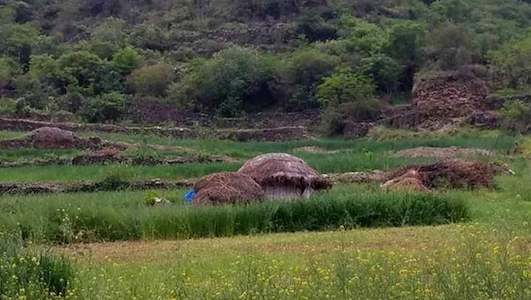
Gandhara Connections Lecture: Rory Stewart - Walking in Afghanistan
We're delighted to announce that this year's Gandhara Connections Lecture will be given online by Rory Stewart at 6.00pm BST on 2nd June 2021.
For our fourth annual Gandhara Connections lecture we go online, with the former diplomat, politician, writer, walker, and polymath, Rory Stewart OBE. Among his many interests, the history and heritage of the 'Gandharan' regions, in Afghanistan and Pakistan, have been an abiding concern, notably in his writing (his bestselling The Places in Between) and his work through the Turquoise Mountain Foundation.
More details of this lecture will be announced soon, but it is possible to register now through Crowdcast on:
https://www.crowdcast.io/e/the-2020-2021-gandhara/register
Updated programme now available for online workshop: The Rediscovery and Reception of Gandharan Art
Following the postponement of our 4th Gandhara Connections International workshop in 2020, we are delighted to announce that this event will now take place online via Zoom on 24th-26th March 2021. The recording of the workshop will go on the website afterwards.
Updated programme
Workshop abstract
Speakers' Abstracts
All are welcome and places are free but please book by emailing: carc@classics.ox.ac.uk
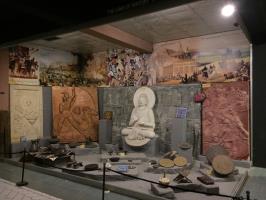
Photo: Andrew Amstutz (Lok Virsa Museum, Islamabad), from LSE Blog.
Buddhist Artistic Expressions of Enlightenment: a special online Gandhara Connections talk by Dr Kurt Behrendt
We are delighted to announce this special talk taking place on Monday 1 February 2021 at 2.30pm GMT as part of the Gandhara Connections project's regular programme of collaborations with museums.
Dr Kurt Behrendt, the curator responsible for the Gandharan works in the Metropolitan Museum of Art, New York, will use this remarkable collection as a springboard for exploring ancient Buddhist art.
The online talk will be followed by the chance to ask questions through the Crowdcast platform, and a recording will later go on our website www.carc.ox.ac.uk/GandharaConnections
Sign up to join us and watch the talk after the event using the Crowdcast link below:
https://www.crowdcast.io/e/buddhist-artistic/register
The Gandhara Connections project is generously supported by the Bagri Foundation and Richard Beleson.
-Resized.png)
Postponed: Gandhara Connections Workshop, The Rediscovery and Reception of Gandharan Art
We very much regret that we have had to postpone the 2020 Gandhara Connections 4th International workshop, which will deal with The Rediscovery and Reception of Gandharan Art, on account of the covid-19 coronavirus situation. We are very much looking forward to rescheduling in 2020 and will advertise new arrangements as soon as the dates are confirmed. The original information is preserved here for information.
The workshop abstract is available to download here.
The updated programme is available here.
All are welcome and places are free but please book by emailing: carc@classics.ox.ac.uk
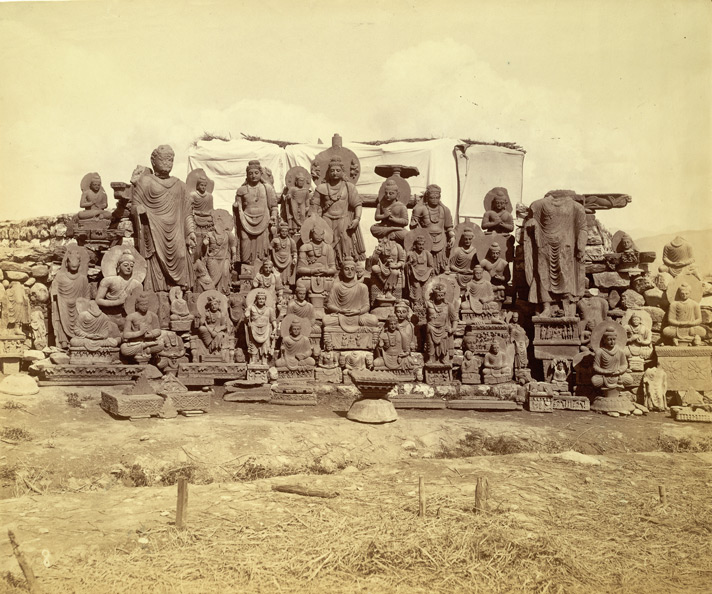
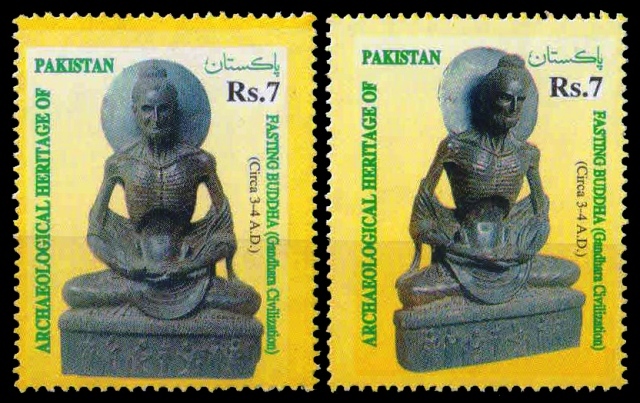
Photos: the British Library; Stampex.
CARC 2019 Gandhara Connections Lecture - On Heracles’ Track to the Indus: Dr Llewelyn Morgan
Oxford University's own Dr Llewelyn Morgan will give the 2019 Gandhara Connections Lecture on 'Heracles' Track to the Indus: Ancients and Moderns in the Swat Valley'. Dr Morgan is Associate Professor of Classical Languages and Literature and author of The Buddhas of Bamiyan (2012), which reflects his longstanding interest in Graeco-Roman connections with Central Asia and India.
The lecture will take place at 5pm on Thursday 14th November 2019 in the Ioannou Centre, 66 St Giles', Oxford OX1 3LU. A video will be made available online afterwards.
All are welcome to attend, but please book (for free) by contacting us: carc@classics.ox.ac.uk

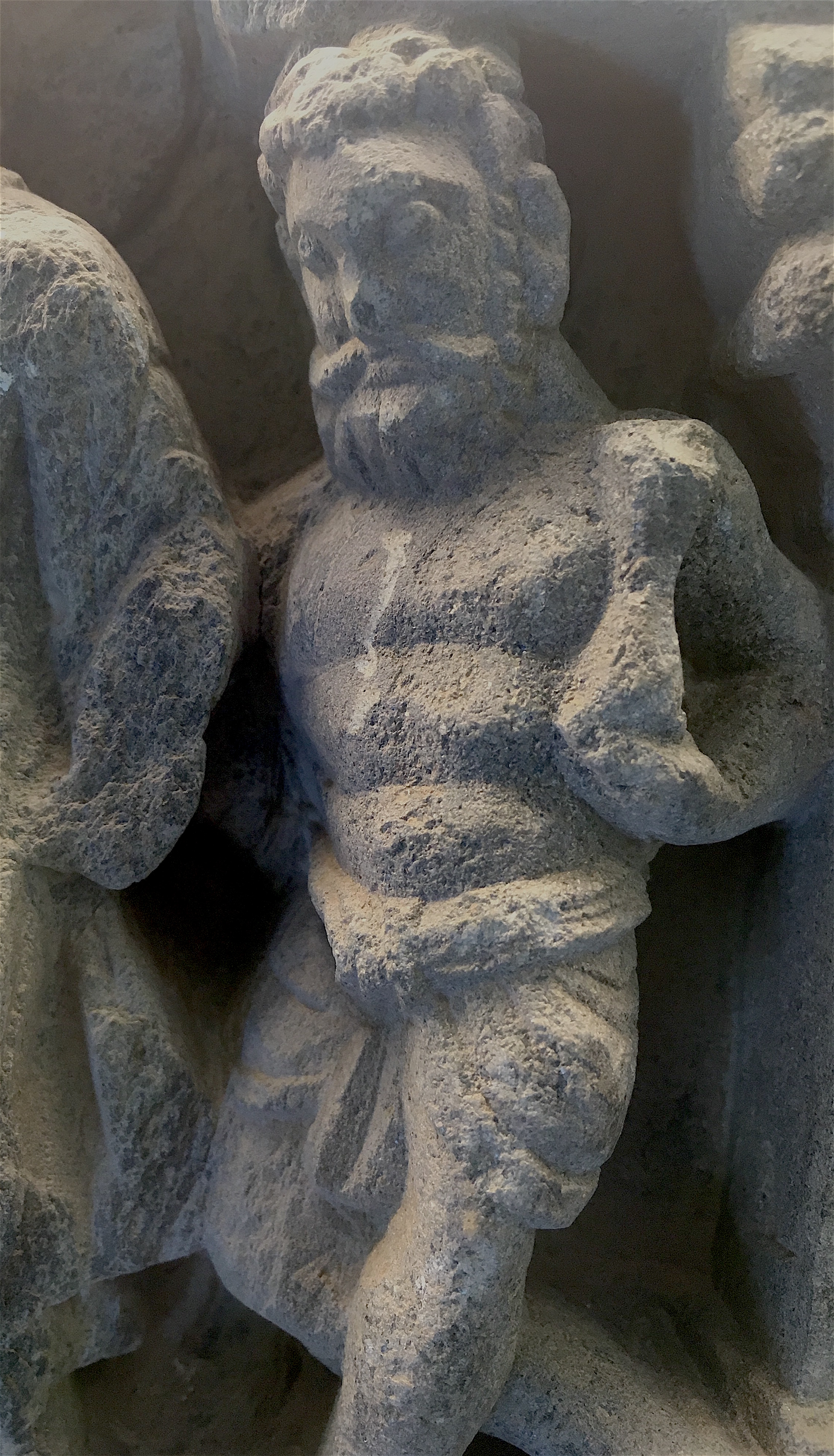
CARC Gem Workshop 2019 - Wednesday 6th November
Program
Numbers are limited: please contact claudia.wagner@beazley.ox.ac.uk if you want to attend.
We will be meeting at 2pm in the Beazley Archive study room on the third floor of the Classics Centre. We will have three lectures:
Professor Véronique Dasen (University of Fribourg): Omphale and the fabric of myth in Roman Glyptic
Fabio Spadini: (University of Fribourg) Earth on Heaven: Astrological Gems.
Miriam Napolitano (Università degli Studi di Cagliari): Gem impressions by Filippo Nissardi (Classical and post-classical gems).
Followed by a discussion, coffee and cake!
Textile Art in the Graeco-Roman World, 26th-27th September 2019
The provisional programme for our 2019 CARC workshop, kindly supported by Jean-David Cahn and Tony Michaels, is now available. Textile Art in the Graeco-Roman World will focus on the visual imagery of ancient textiles from Archaic Greece to late antiquity, asking questions about a fundamentally important art tradition which we glimpse through extraordinary chance survivals and representations in other media. Subjects will have a wide chronological and geographical range, but will revolve around a shared set of art-historical and archaeological questions.
This international workshop will take place in Oxford on Thursday 26th and Friday 27th September 2019. All are welcome and attendance is free, but booking is necessary. Please book now by emailing carc@classics.ox.ac.uk
Download the draft abstract here.
Download the draft programme here. Please check the latest version for updates and time changes.
We will be live-webcasting the workshop and putting most of the edited recordings online afterwards. Click here to view.
Poster Session
Textile Finds from the Rhineland, First to Fourth Centuries AD: Roman Customs and Fashion in the North of the Empire - Dr Petra Linscheid (University of Bonn)
Student Bursary Opportunity
We are delighted this year to be able to offer two student bursaries for this workshop. These are intended to support undergraduate and graduate students currently enrolled on University programmes or due to start by October 2019. Each bursary covers up to £100 in support of travel and accommodation expenses.
Please apply by emailing carc@classics.ox.ac.uk with a letter of no more than 500 words including an estimate of costs. The closing date for applications is noon on Monday 2nd September and successful applicants will be notified shortly after this time. Payment will be made after the event on submission of receipts (please note that reimbursement can take up to six weeks).
.jpg)
Image: second-century AD painted linen shroud from Roman Egypt. Metropolitan Museum of Art, New York (CC0 licence).
Gandharan Art in the Victoria and Albert Museum: 21st June 2019
A Gallery Talk and Discussion in the V&A
In collaboration with colleagues at London’s Victoria and Albert Museum we will be hosting a public tour and discussion in the Museum, focusing on some of the highlights of the V&A’s famous collection of Gandharan sculpture. The tour will be led by V&A curator Nick Barnard and CARC’s director, Peter Stewart. We shall be considering the sculptures both in their South Asian context and in relation to Graeco-Roman connections.
The tour will take place in the Museum 10.15-11.15 am on Friday 21st June 2019. Places for this small-group tour are very limited and currently all are fully booked. We are compiling a reserve list and if you would like to be added to this list, please contact the Classical Art Research Centre: carc@classics.ox.ac.uk (tel. 01865 278083). We may also give priority to students and those who do not normally have an opportunity to access museum collections in this way.
We plan to film the talk so that it can be made accessible to a wider audience through the Gandhara Connections webpages (note that the audience will not appear on film but may be audio-recorded).
Gandharan Art in Oxford: An Interview with David Jongeward
Dr Peter Stewart interviews Dr David Jongeward at the Classical Art Research Centre, 11th June 2019, to celebrate his newly published catalogue, Buddhist Art of Gandhara in the Ashmolean Museum. David talks about his unusual career and the journey that brought him from north American anthropology to Gandharan art. He introduces some of the most interesting pieces in the collection.
Click here to view.
The Global Connections of Gandharan Art: 18th-19th March 2019
The Global Connections of Gandharan Art: 18th-19th March 2019
The updated programme and workshop abstract for CARC's next international workshop for the Gandhara Connections project are now available on our Gandhara Connections Events page. We expect changes to the programme so be sure to keep an eye on the latest version published here.
'The Global Connections of Gandharan Art' will take place in Oxford on 18th-19th March 2019 and will re-examine the links between Gandharan art and other artistic traditions, including not only those of Greece and Rome, but also China, the Iranian world, and the Indian Subcontinent.
The event will be free and all are welcome to attend, but please book a place by emailing carc@classics.ox.ac.uk. We also expect to record and live-webcast the event.
2018 Gandhara Connections Lecture, Friday 2nd November. Professor Naman Ahuja: A Mother to the Children of the World: Hariti in Gandhara
We are delighted to announce that Naman P. Ahuja, Professor of Art History at Jawaharlal Nehru University, New Delhi, will give this year's Gandhara Connections Lecture. The lecture will take place at CARC's premises in Oxford, the Ioannou Centre for Classical and Byzantine Studies, 66 St Giles', Oxford OX1 3LU, at 5pm on 2nd November 2018. The event will be free and all are welcome to attend, but please book a place by emailing us (carc@classics.ox.ac.uk). Professor Ahuja's lecture will be followed by the launch of his new Ashmolean Museum book, Art and Archaeology of Ancient India.
In an age of diasporas, we often think about how a single image can be made to communicate to diverse people. What can the art of Gandhara tell us? In an extraordinary visual effort to bring together diverse religious communities, the Buddhist goddess, Hariti, in Gandhara began to be shown with children that came from Egypt, Iran, Lebanon, Syria, Greece and mainland India. Looked at from the perspective of these diverse children, she might not actually have been the Buddhist Hariti to them all. While the Greeks could think of her as Demeter, the Egyptians probably regarded her as Isis, and the Hindus as a matrika. Similarly, an image for the Bodhisattva Vajrapani was created in such a way that he could be read either as the Zoroastrian Behram, or the Roman Hercules. Indra, doubled up as Zeus; Shiva as Oesho and Dionysius.
This lecture provides a close reading of some of these extraordinary iconographic developments in Gandhara to show what kind of images emerged in that multicultural society. Gandhara is usually thought of as a mishmash of artistic styles, however by carefully peeling away the many sources for creating these images, it will be seen that they can be polyvalent, as well as, as shall see in this talk, they seek also to accommodate difference. Can the art historical record be found to supplement what we have learnt of the anxieties around the gradual assimilation of foreigners in Ancient India?
Globalisation brings a fear of homogenising different cultural identities, and yet, what it has enabled, oftentimes, is a cosmopolitanism that allows for different local practices to coexist even as some differences collapse. Similar ideas can be seen in the past as well.
Gandhara Connections International Workshop, 2018: The Geography of Gandharan Art
THE CARC WORKSHOP 2017 TRANSMISSION: THE MIGRATION OF ICONOGRAPHY IN CLASSICAL ART
CARC Special Lecture: Prof Marian Feldman 'Style as a Fragment of the Ancient World: A View from the Iron Age Levant and Assyria'
Professor Marian H. Feldman (Johns Hopkins University, Baltimore) will be speaking at 4pm, Monday 8th May, 2017
Ioannou Centre Lecture Theatre, 66 St Giles', Oxford OX1 3LU:
All are welcome! The lecture will be followed by a reception.
This special lecture also forms part of the Oxford Classical Archaeology Seminar for Trinity Term, 2017, on the theme of 'Style'. For details of the whole programme nearer the time see the Faculty of Classics website
CARC Workshop 2016: The Maker's Share in Ancient Greek Art
Classical Art Research Centre Workshop 2015 - Replicas in Roman Art: Redeeming the Copy?
Documents from the Workshop held
on Thursday 1st and Friday 2nd October 2015 in Oxford.
Generously supported by Jean-David Cahn and Tony Michaels
Organiser: Dr Peter Stewart (University of Oxford)
Download the Abstract (pdf)
Download the Programme (pdf)
Presentations
The Problem of the Replica, Dr Peter Stewart (Director, Classical Art Research Centre) (ppt)
Types and Versions in Roman Art: Some Contexts, Prof RRR Smith (Oxford) (pptx)
Retrospective Styles in Late Hellenistic and Roman Art: Terminology and Interpretation, Prof Christopher Hallett (Berkeley) (pptx)
Replicas, Copies, and Representations: Some Material and Methodological Considerations, Dr Ken Lapatin (J. Paul Getty Museum) (pptx)
Pictorial Qualities and their Replication, Prof Michael Koortbojian (Princeton) (pptx)
Anonymous 'Originals': Greek Sculpture of the Classical Period in Roman Context, Dr Gabriella Cirucci (Pisa) (pptx)
From Bronze to Marble: Sculpture Copies and their Supports, Dr Anna Anguissola (Erlangen) (pdf)
The Syon House Aphrodite, Dr Julia Lenaghan (Oxford) (pptx)
A History and Theory of Lock-Counting, Dr Ellen Perry (Holy Cross) (pptx)
Intertextuality and Roman Visual Culture: A New Approach to Roman Ideal Sculpture, Dr Julia Habetzeder (Uppsala) (pptx)
Classical Art Research Centre Workshop 2014 - Etruscan Art to Roman Art. A Reappraisal
These pages will contain feedback and documents from the Workshop held
on Wednesday 1st and Thursday 2nd October 2014 in Oxford.
Generously supported by Jean-David Cahn, The Thomas Whitcombe Greene Fund, and the Lorne Thyssen Research Fund for Ancient World Topics at Wolfson College
Organisers: Dr Charlotte Potts and Dr Peter Stewart (University of Oxford)
Download the Abstract (pdf)
Download the Programme (pdf)
The Arundel Sculptures: new insights
A Workshop Organized by the Ashmolean Museum and the Classical Art Research Centre, Oxford
Monday 20th May, 2013, Ashmolean Museum
To celebrate the reinstallation of the Arundel Marbles in the Ashmolean Museum's Randolph Gallery, the Museum and the Classical Art Research Centre are collaborating to hold a workshop that re-examines the history of the Arundel collection and its individual sculptures. The day is aimed at students, academics, and anyone with relevant research interests.
The workshop will offer a fresh introduction to the collection from Oxford specialists, an explanation of the new installation by the Project Curator responsible, and the opportunity to examine selected sculptures at very close quarters, in small groups, outside normal museum opening hours. Sculptures to be studied will including works that have not been on display for many years.
To book a free place or for further information, please contact carc@classics.ox.ac.uk or call 01865 278083. Places are limited, so please book early.
Provisional programme
09:20 Registration and coffee
09:45 Introduction
10:00 The Formation of the Arundel Collection (Dr Susan Walker)
10:45 Coffee/tea
11:15 The Dispersal of the Arundel Collection: New Evidence (Dr Peter Stewart)
12:00 Re-installing the Collection (Ms Alison Pollard)
12:30 Lunch break (NB lunch not provided)
1:30 Small groups examine selected sculptures, with exclusive access to the Randolph Gallery. Discussions led by Ashmolean curators and Oxford researchers, including: Alison Pollard, Prof RRR Smith, Dr Peter Stewart, Prof Michael Vickers, and Dr Susan Walker
The workshop will finish by 3.30pm.
CARC Workshop 2012: Introduction to ancient gem research
Organised by Dr. Claudia Wagner (Beazley Archive Gem Research Project)
Download programme (pdf)
A one-day course suitable for students of archaeology, classics, ancient history, jewellery history and art history, with a special interest in gem research.
Saturday 23rd June 2012, 10.00 – 5.00
Programme
Introduction to engraved gems (Prof. Sir John Boardman and Dr. Claudia Wagner)
- Styles and periods
- Dates and techniques
- Reception of gems
- Collections and impressions
- Neo-classical gems
Roman Gems in Britain (Dr. Martin Henig)
Lunch break
Handling session (Dr. Jack Ogden, Chief Executive, Gemmological Association)
- Gem usage in Antiquity
- How to identify the material of gems
Practical gem research
- How to make gem impressions
- Gem photography
Workshop venue
This free workshop will be held in the Lecture Theatre and the Beazley Archive Study Room, in the Ioannou Centre for Classical and Byzantine Studies, 66 St Giles', Oxford OX1 3LU.
Tea/coffee will be provided but lunch is not included. There is a wide choice of sandwich bars, pubs and restaurants less than two minutes walk from the department.
Booking
Please register for the workshop by 1st June, by contacting carc@classics.ox.ac.uk (tel. 01865 278083). The numbers will be limited for the handling session and priority may be given to current or prospective graduate students.
Ancient Britain and Classical Art: CARC workshop, 27-28 September 2018
Preparations are under way for our next annual CARC workshop, 'Ancient Britain and Classical Art', to be held in the Ioannou Centre, 66 St Giles', Oxford OX1 3LU on Thursday 27th and Friday 28th September. Generously supported by Jean-David Cahn and Tony Michaels, this workshop examines the complex relationship between the visual cultures of ancient Britain and the Graeco-Roman traditions of the Continent and the Mediterranean over a period of a thousand years. Considering not only the period of Roman Britain but also the art of the pre-Roman Iron Age and the early Anglo-Saxon period, the workshop aims to stimulate dialogue across disciplinary boundaries. The abstract is downloadable here, and further details will follow soon.
The workshop is free and all are welcome to attend, but please book a place by emailing carc@classics.ox.ac.uk
Saving Mes Aynak - special film showing and interview with Brent E. Huffman
The extraordinary Silk Road archaeological site of Mes Aynak, 25 miles south-east of Kabul is one of the largest and most important in Afghanistan, and includes extensive remains of Buddhist art and architecture from the first millennium. But the vast copper deposits beneath the site, which contributed to its ancient prosperity, also represent a phenomenally valuable resource for a a modern country in need of investment, and in 2007 the site was leased to the China Metallurgical Group for £3 billion.
Following the rescue excavations that ensued and some of the personalities involved with the site, Brent E. Huffman's multi-award-winning 2014 documentary, Saving Mes Aynak, focused international attention on the threat to the archaeology and the tensions surrounding it.
As part of our Gandhara Connections project, supported by the Bagri Foundation and the Neil Kreitman Foundation, the Classical Art Research Centre is delighted to announce a special Oxford screening of Saving Mes Aynak, followed by an interview with the director, which will highlight recent developments and probe some of the complexities of the site's predicament.
Thursday 8th March 2018, 5-7pm, followed by a reception.
Ioannou Centre, 66 St Giles', Oxford OX1 3LU.
All are welcome, but please email us to book a free place at carc@classics.ox.ac.uk






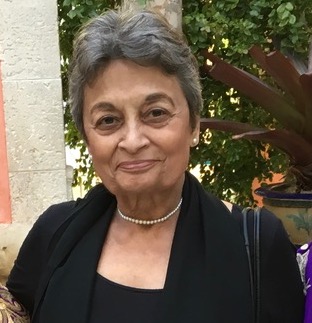







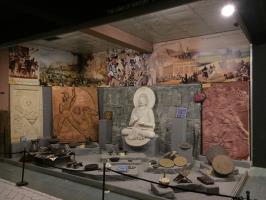


-Resized.png)
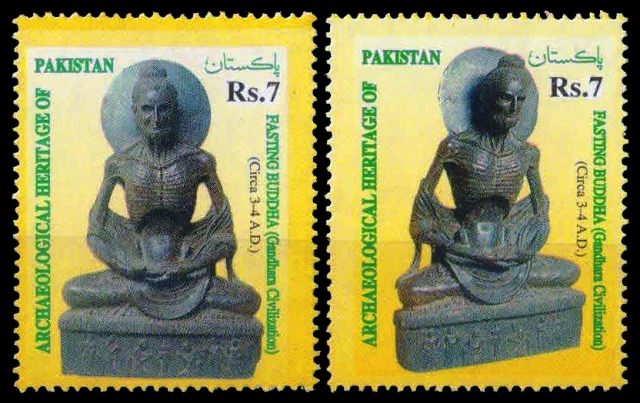




.jpg)
